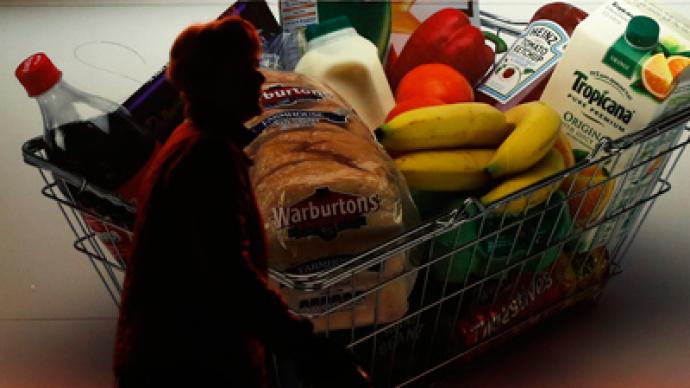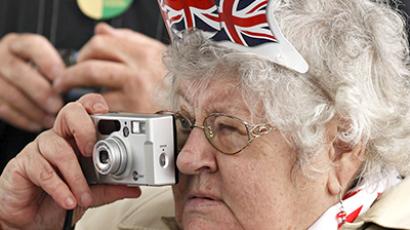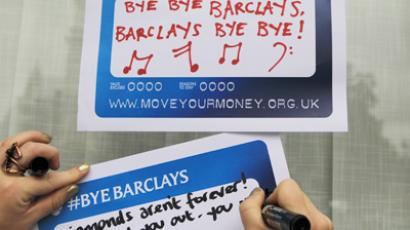UK’s poorest families face hundreds of percent tax rise

Under the UK government’s austerity program millions of low income households are facing a hike in their council tax bills of up to 333% a year. New changes are to be introduced this April, while Scotland and Wales chose not to implement the cuts to benef
The UK benefits system is about to undergo it’s most radical restructuring since the introduction of the welfare state after the Second World War and many families will be pushed further into poverty, a new report by the Resolution Foundation think tank reveals. The biggest shakeup will be in Council Tax, a tax paid by households to local councils, which is not decided by income. Currently people on low paid jobs or the unemployed can apply for Council Tax Benefit (CTB), effectively exempting them from paying the tax. All other means tested benefits will be streamlined into one national system, which will be called Universal Credit (UC), a move welcomed by the report’s authors. CTB is a national scheme and provides assistance to nearly 6 million low income families in the UK; but as of the 1st April 2013 CTB will cease to exist. Instead a new system will be introduced called Council Tax Support Schemes. Those who require assistance with their council tax bill will have to apply to whichever of the 326 local authorities they live in, who will make their own independent decision on whether to grant support. However, central government has introduced a 10% cut in its subsidy budget – which local authorities would use to help people with their council tax – which effectively confronts local authorities with a choice. Either introduce less generous schemes, thereby forcing low income families to pay more council tax, or find savings elsewhere. But council tax payers in Scotland and Wales will not be affected because their devolved governments will cover the 10% shortfall in funding from central government. The CTB reform is expected to annually save £480 million, of which £410 million would come from England.The report reveals the intentions of 184 of England’s 326 local authorities on how they plan to cover the shortfall. 75% of them will demand a higher council tax payment from those on low incomes. However, given the variation in local council plans in England, the financial impact of the reforms varies widely. Of the 700,000 people who receive CTB and are in work, and most of whom pay some council tax, the worst hit will be single parents working part-time with their children in childcare. The increase in their annual council tax bill could be anywhere between £96 (a 55% increase) and £577 (a 333% increase). A typical single parent working part-time , and not paying for childcare will face increases in their annual Council Tax bill ranging from £96 (an increase of 14%) to £446 (an increase of 66%) depending on the severity of the local scheme introduced.A typical couple with one partner in work will see their council tax bills rise between £96 (a 12% increase) and £304 (a 37% increase) a year. Working age unemployed people, of which there are 2.5 million and who pay no council tax, will have to find between £96 and £255 a year. The government says it has provided a £100 million transitional grant to help councils deal with the shortfall in the subsidy from central government. Local authorities must also legally maintain help for pensioners but there is no obligation to do so for the disabled. Although it was not revealed in the report how many disabled people would be affected by the cuts.Brandon Lewis the minister in charge of local government defended the decision to scrap CTB. “Under the last administration, more taxpayer’s money was spent on benefits than on defense, education and health combined. Our reforms will localize council tax support and give councils stronger incentives to support local firms, cut fraud, promote local enterprise and get people into work,” he said. The authors of the study raise the possibility that large numbers of people now receiving CTB will struggle or just refuse to pay the small amounts of money that will now be required of them every month. Local councils have said they are preparing to increase powers allowing bailiffs to pursue nonpayment through the court system. The study concludes that “some of the poorest household in Britain will see their hard-pressed household budgets squeezed even further and, in future years, their work incentives undermined”.The chief executive of the think tank, Gavin Kelly, which carried out the study, warned that the effects of the change would be very damaging to those who can least afford to pay for the government’s austerity drive. “Millions of England’s poorest households already very close to the edge given falling wages, tax credits and benefits…are going to find it very difficult to cope,” Kelly told the Independent. Some Conservative MPs are worried that the changes may become a ‘second poll tax’. The flat rate poll tax, which meant everyone paid the same rate regardless of their income, resulted in public protests and riots and was eventually the downfall of then Prime Minister Margaret Thatcher.














